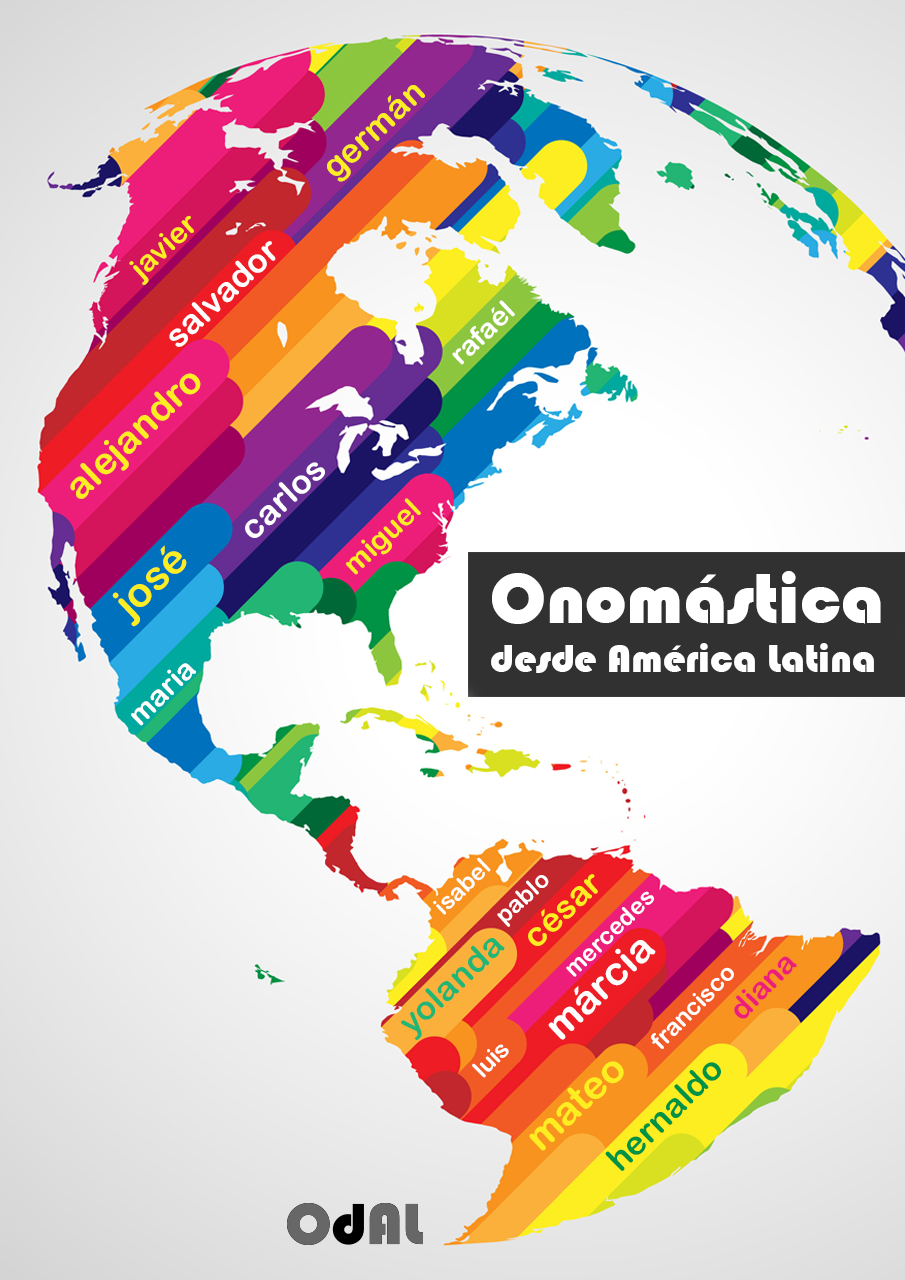Gbari Personal Names: A Communicative Act and Rhetorical Features Analysis
DOI:
https://doi.org/10.48075/odal.v5i1.33254Keywords:
Gbagyi Personal names, discourse-rhetorical patterns, Christianity, IslamAbstract
This study is concerned with the communicative acts and rhetorical patterns analysis of Gbari Personal Names, henceforth GPN, of the Gbari of North Central Nigeria. Using a small-sized corpus of one hundred (100) GPNs, the study deploys a concatenated framework which adapts and tweaks elements mainly from Austin’s (1962) Speech Act Theory and Bach and Harnish’s (1979) Mutual Contextual Belief; in order to combine communicative and rhetorical insights on the analysis of GPNs. Data collection consists of drawing a sample from the population of the study using the quasi-formal interview method to obtain information from the respondents from the Federal Capital Territory, Abuja-Nigeria which comprises of three out of the five Area Councils where the Gbari are in the majority namely: (1) Gwagwalada, (2) Kwali and (3) Kuje. Study findings indicates that GPN system is now highly productive. New GPNs which have never been produced can be constructed especially that on the basis of current theophoric Gbari personal names, many Gbari Christians can (re)construct corresponding names either by: a recourse to the system of affixation such as Sokwo-gaa+ She-kwo-nu-che-sayi = Sokwo-nu-che-sayi/Only God gives a testimony. This name, as yet probably not an actual Gbari personal name, like many variations of personal names, are potential Gbari personal names. Also, morpho-syntactic repositioning or shifting of the subject NP (She-kwo) of many Gbari sentence names to either the middle or final positions and/or its replacement with other grammatical classes or even NPs are possible; hence many more GPNs could be generated. Consequently, study indicates there is both a resurgence as well as a decline of GPN; a resurgence due principally to Gbagyi Christians who nearly completely bear all names Gbagyi-personal as well surnames while for Gbagyi Muslims, there is an almost complete obliteration of Gbagyi names.
References
Adler, M. K. (1978). Naming and Addressing: A Sociolinguistic Study. Hamburg: Buske.
Aristotle. (2007). On Rhetoric: A Theory of Civic Discourse. 4 cent. BCE. 2nd ed. trans. George A. Kennedy. New York: Oxford UP
Austin, J. L. (1975). How to do Things with Words. Cambridge: Harvard University Press.
Bach,K and Robert Harnish.(1979).Linguistic Communication and Speech Acts. Cambridge: MIT Press.
Bardis, P. D. (1972). Social Aspects of Personal Onomastics among the Ancient Hebrews. Social Science, (2), 100.
Blench,R.(1989b).New Benue-Congo: A Definition and Proposed Internal Classification. Afrikanistiche Arbeitspapiere, 17:115-47
Chuks-Orji, 0. (1972). Names from Africa: Their origin, meaning, and pronunciation. Chicago: Johnson.
Cruse, D. A. (2011). Meaning in Language: An Introduction to Semantics and Pragmatics. Oxford : Oxford University Press
Diko, Ishaku Baraje. (1997). Gbagyi Anyibesisi.Minna: Ajiboye Printer Ltd.
FitzGerald, William. Spiritual Modalities: Prayer as Rhetoric and Performance. (2014).London: Republican,
Gwamna, Dogara Je-Adayibe.(1996).Gbagyi Names: Religious and Philosophical Connotations. Jos-Nigeria: Gbagyi Vision Publications/Department of Religious Studies, University of Jos.
Levinson, Stephen. (1983). Pragmatics. Cambridge: University Press.
Lindquist, Julie. (2007). ‘‘Working-class Rhetoric as Ethnographic Subject’’. In W. DeGenaro (ed.), Who Says? Working-class Rhetoric, Class Consciousness. New York: University Press
Marcus, M. G. (1976). Power of a name. Psychology Today, 10, 75.
Plato (380 BCE). (1952) Gorgias. Trans. W.C. Hembold. New York: MacMillan,
--- (370 BCE). Phaedrus. Trans. H. N. Fowler. London: Bizzell and Herzberg.
Rosendall, Heidi James. (1992) A Phonological Study of Gwari Lects. Dallas,TX: Summer Institute of Linguistics
Searle, J. R. (1999). Speech Acts: An Essay in the Philosophy of Language. Cambridge: Cambridge University Press.
Schneider, M. (2009). "What's My Name?" Toward a generative Anthroponomastics. Anthropoetics: The Journal of Generative Anthropology, 15(1), 1-6.
Shankle, G. E. (1976). American Nicknames: Their Origin and Significance. New York: Wilson. (Original work published 1955)
Smith, E. C. (1950). The Story of Our Names. New York: Harper.
Stewart, G. K. (1979). American Given Names: Their Origin and History in the Context of the English Language. New York: Oxford University Press.
Williamson, Kay. (1989). ‘Niger-Congo Overview’ in The Niger Congo Languages, Ed. by John Bendor- Samuel, 246-274. University Press of America.
Yonge, C. M. (1966). History of Christian Names. London: Macmillan.
Yule, George. (1985). The Study of Language. Cambridge: Cambridge University Press,
Zabeeth, F. (1968). What is in a Name? An Inquiry into the Semantics and Pragmatics of Proper Names. The Hague: Martinus Nijhoff.
Zweigenhaft, R. L. (1981). Unusual Names and Uniqueness. Journal of Social Psychology, 114, 297-298.
Downloads
Published
How to Cite
Issue
Section
License
Copyright (c) 2024 Adegboye ADEYANJU

This work is licensed under a Creative Commons Attribution-NonCommercial-ShareAlike 4.0 International License.
Creative Commons Copyright Notice
Open Access Journals Policy
Authors who publish in this journal agree to the following terms:
1. Authors retain the copyright and grant the journal the right of first publication, with the work simultaneously licensed under the Creative Commons Attribution License that allows the sharing of the work with recognition of authorship and initial publication in this journal.
2. Mandatory authorities to assume commitments, for non-exclusive distribution of the version of the work published in this journal (eg, publish in an institutional repository or as a book chapter), with recognition of authorship and initial publication in this journal.
3. Authors are allowed and encouraged to publish and distribute their work online (eg in institutional repositories or on the personal page) at any point before or during the editorial process, as this can generate productive changes as well as increase impact and citation of the published work (See The Effect of Open Access).
Creative Commons License
This work is licensed under a Creative Commons Attribution-NonCommercial-ShareAlike 4.0 International License, which allows sharing, copying, distributing, displaying, reproducing, a whole or parts as long as it has no commercial purpose and is cited by authors and a source.

